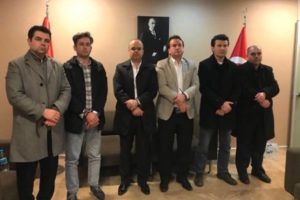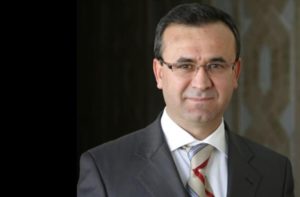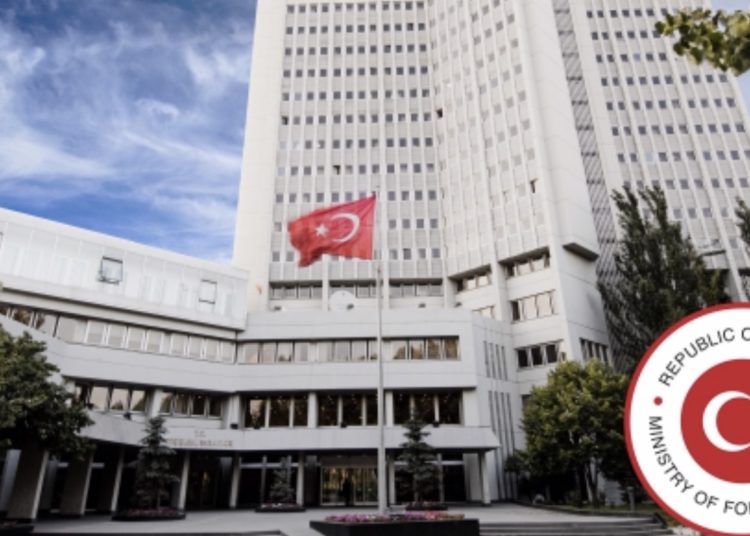Abdullah Bozkurt/Stockholm
In a wide net cast by Turkey to hunt down critics of President Recep Tayyip Erdoğan beyond the nation’s borders, Turkish diplomats secretly investigated all expatriates whose professions were listed as teachers in various consular filings.
According to a Turkish foreign ministry communiqué, stamped secret, the Turkish Embassy in Kosovo profiled 78 people who had listed their professions as teachers when they made applications with the consulate for various citizen services.
Similar work has apparently been done in other Turkish embassies and consulates at the request of the Security General Directorate (Emniyet), the main law enforcement agency in Turkey, which was politicized with a mass purge of some 30,000 officers from the police force.
The specific order with respect to Kosovo was issued by the Emniyet on September 9, 2016 and communicated to the foreign ministry, which in turn ordered all Turkish diplomats and consular staff to compile lists of teachers abroad. The twisted rationale behind this unprecedented fishing expedition was a belief that expatriate Turkish teachers are affiliated with the Gülen movement, a group that is critical of the Erdoğan government on a range of issues from corruption in the administration to Turkey’s aiding and abetting of armed jihadist groups.
The Gülen group, inspired by US-based Turkish Muslim scholar Fethullah Gülen, has been running a network of schools in more than 100 countries around the world. Some of the staff members of these schools are Turks, albeit a minority in the management and teaching staff, and they had to engage with Turkish consulates to avail themselves of citizens services such as notary, passport renewal, birth registration, registering for compulsory military service and more.
Concerned about political fallout and possible criminal charges in the future, the General Directorate for Consular Affairs at the foreign ministry warned in its communiqué that the data collected from abroad must not be shared with the people who were profiled or their relatives or any other third party. It asked that the information be kept confidential.
Four-page secret Turkish Foreign Ministry document listed 78 people from Kosovo alone. Thousands of Turks who work as teachers were believed to have been targeted by Turkish diplomats and their names reported back to Turkey, where criminal proceedings were launched against them:
The postscript of the communiqué indicated that the list of 78 people from Kosovo was shared with the intelligence agency, MIT, and various provincial police departments in Turkey. Since the document covered only those who were listed in Kosovo, thousands of Turks in other countries who reported themselves as teachers while requesting citizen services at Turkish consulates must also have been profiled by Turkish diplomats and consular officers.
The data harvested from these applications were unlawfully used in criminal procedures initiated by the Turkish government after the expats with teaching jobs were identified by Turkish diplomats. It was a total disregard of the rule of the law and due process and a blatant abuse of criminal procedures for the political goals of the Erdoğan government.
The massive net cast by Turkish diplomats who engage in spying operations on foreign soil also amounts to a violation of the domestic laws of receiving states and the principles of international law by conducting unlawful information-gathering campaigns and sweeping intelligence operations. In the aftermath of a coup attempt in Turkey on July 15, 2016, some Western countries launched investigations into the spying activities on Turks and Turkish organizations overseas by Turkish Foreign Ministry personnel, representatives of relevant authorities, imams and intelligence officers accredited as diplomats.
The immunities and privileges of diplomats and consular staff are governed by international conventions. However, diplomats enjoying the privileges and immunities described in the Vienna Convention on Diplomatic Relations are under a duty to respect the laws and regulations of the receiving state and to avoid interfering in its internal affairs as detailed in Article 41. Similarly, consular staff are granted limited privileges and immunities by the Vienna Convention on Consular Affairs, but the host state authorities can start investigations and prosecute any of the personnel if they perpetrate crimes inside or outside the consulate premises, according to Article 43 of the convention.

Turkey’s Pristina embassy was key to the logistics and planning of the abduction of six critics who were kidnapped by Turkey’s National Intelligence Organization (MİT) and served as a detention center for the abduction operation in Kosovo. The Turkish nationals were kept for a time in the embassy chancery or at the residence of then-Turkish Ambassador Kıvılcım Kılıç.
General Director of the Gülistan Education Institution Mustafa Erdem; Assistant Director Yusuf Karabina; Kahraman Demirez, the principal of a school in Gjakova; two Gjakova teachers, Cihan Özkan and Hasan Hüseyin Günakan; and cardiology professor Osman Karakaya were abducted by MİT in March 2018 and taken back to Turkey. All of them hold Turkish citizenship and are believed to be affiliated with the Gülen group.
Some elements of Kosovo government agencies cooperated with Turkish spy agency in the abductions. In February 2021, Kosovar authorities indicted three individuals — Driton Gashi, former head of the Kosovo Intelligence Agency; Valon Krasniqi, director of the Department of Citizenship and Migration at the Interior Ministry; and Rrahman Sylejmani, head of the Directorate of Migration and Foreigners in the Kosovo Border Police – who were involved in the illegal deportation.
In a recent development Orhan İnandı, the founder and president of the Turkish-Kyrgyz Sapat school network operating in Kyrgyzstan, went missing on May 31, 2021. The educator is feared to have been abducted by Turkey’s spy agency due to his links to the Gülen movement.
The United Nations Human Rights Committee has called on Turkey to promptly take all measures necessary to establish the whereabouts of the Turkish-Kyrgyz educator in Kyrgyzstan. The committee also said Turkey should ensure that İnandı would not be subjected to torture and inhuman treatment, guarantee his physical and mental integrity and immediately place him under the protection of the law.

UN rapporteurs Luciano Hazan, chair-rapporteur of the Working Group on Enforced or Involuntary Disappearances; Felipe González Morales, special rapporteur on the Human Rights of Migrants; Fionnuala Ní Aoláin, special rapporteur on the Promotion and Protection of Human Rights and Fundamental Freedoms While Countering Terrorism; and Nils Melzer, special rapporteur on Torture and Other Cruel, Inhuman or Degrading Treatment or Punishment sent a joint letter to the Turkish government to express their concern about the “systematic practice of state-sponsored extraterritorial abductions and forcible return of Turkish nationals from multiple States to Turkey.”
President Erdoğan has been targeting followers of the Gülen movement since the corruption investigations of December 17-25, 2013, which implicated then-Prime Minister Erdoğan, his family members and his inner circle.
The crackdown on critics and the purge of government officials accelerated after the failed coup in July 2016, giving Erdoğan a pretext to pursue a mass purge with no administrative or judicial probes. The government has rounded up over half a million people from the movement since 2016, mainly on dubious coup, terrorism or defamation charges. The witch-hunt aims to suppress civil society, silence critical voices and stifle the right to dissent, while Erdoğan continues to transform the Turkish democracy into a dictatorship.
As part of the massive crackdown on the Gülen movement, more than 130,000 public servants, including 4,156 judges and prosecutors, as well as 20,571 members of the armed forces were summarily removed from their jobs for alleged links to Gülen group. Nearly 200 media outlets, over 1,000 educational institutions and close to 2,000 NGOs were shut down without any due process.
The assets of thousands of people with alleged ties to the Gülen movement were also confiscated or frozen by the government. According to a report by Brussels-based human rights group Platform for Peace and Justice (PPJ), the total value of confiscated or frozen assets is $32 billion.
Turkish Interior Minister Süleyman Soylu stated on November 26, 2020 that a total of 292,000 people have been detained while 96,000 others have been jailed due to alleged links to the movement since the failed coup. The minister said there are currently 25,655 people in Turkey’s prisons who were jailed due to links to the movement.
Critics of the Erdoğan government abroad, especially members of the movement, have also been facing surveillance, harassment, death threats and abduction since President Erdoğan decided to scapegoat the group for his own legal troubles.












